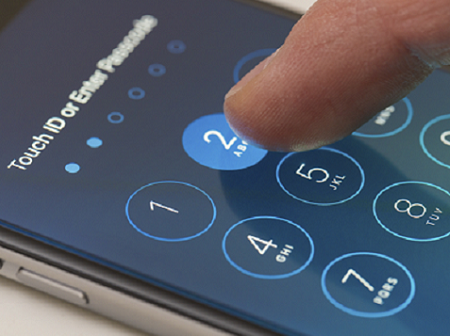Apple Preparing Enhanced iPhone Security, NYT Reports
The struggle between Apple, the FBI and the US Justice Department speaks to a need for critical discussions about the ramifications and rules in a changing world. The New York Times reports Apple is looking to make it even harder to crack the iPhone's security, while CEO Tim Cook continues to defend his company.


iPhone Encryption: 5 Ways It's Changed Over Time
iPhone Encryption: 5 Ways It's Changed Over Time (Click image for larger view and slideshow.)
Apple is taking steps to strengthen the security on its iPhones and make the smartphones harder to break into, The New York Times reported Feb. 25, citing security experts and people close to the company.
This comes as Apple is facing a deadline of Friday, Feb. 26, to comply and answer to a Feb. 16 court order to help law-enforcement agencies access locked iPhones.
"We are advocating for civil liberties, which they are supposed to protect. It is incredibly ironic," Apple CEO Tim Cook told ABC World News Tonight anchor David Muir during a Feb. 24 interview, framing the ongoing and divisive struggle.
The Pew Research Center reported Feb. 22 that a study of 1,002 adults found 51% were in favor of Apple unlocking the iPhone. The study noted the age of the participants and their level of education and political affiliation, but not their profession or grasp of an incredibly fast-changing, data-driven world and the new thinking and laws that this new world demands, and will continue to demand.
"This moment calls for public discussion," Cook wrote in a Feb. 16 open letter, bringing the matter to the world's attention. "This order… has implications far beyond the legal case at hand."
Change is happening so quickly – "The smartphone that you carry has more information about you on it than any other singular device or any other singular place," Cook told Muir -- that many such needed discussions may wind up happening in courts.
The iPhone that prompted the court order belonged to one of the attackers in San Bernardino, Calif. But since then, the Justice Department and FBI have demanded Apple's help unlocking at least nine other iPhones, the Times reported separately, Feb. 23.
That same report added that "law enforcement officials around the country are anxiously watching the cases" and that the New York City police commissioner and Manhattan district attorney say they have at least 175 iPhones that they've been unable to unlock and that could help with investigations.
More than simply unlocking devices, the FBI has asked Apple to build a new operating system -- an operating system Cook likened, during the ABC interview, to "the software equivalent of cancer" -- that would bypass Apple security protocols.
[Read how Apple is being asked to unlock more than one iPhone.]
"We think it's bad news to write. We would never write it. We have never written it -- and that is what is at stake here," Cook continued. "We believe that is a very dangerous operating system."
During the ABC interview he repeatedly referred to the need to consider the larger issue, telling Muir, "It's not just about privacy, it's also about public safety. … No one, I don't believe, would want a master key built that would turn hundreds of millions of locks. … That is what this is about. … I know people like to frame this argument as privacy versus national security, but that is overly simplistic and it is not true."
A senior Apple official told the New York Times it was a "safe bet" that Apple security would continue to improve, while a person close to the company added that Apple had been working "on a solution" even before the San Bernardino attack.
What have you done to advance the cause of Women in IT? Submit your entry now for InformationWeek's Women in IT Award. Full details and a submission form can be found here.
About the Author
You May Also Like






